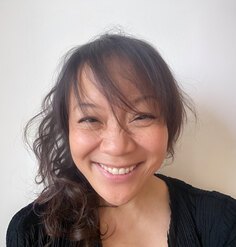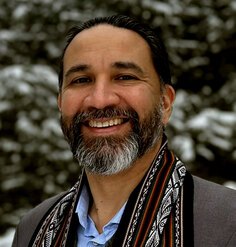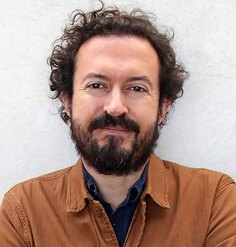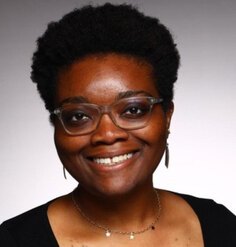Perspectives: Ujijji Davis

November 24, 2020
Brooklyn native Ujijji Davis is currently based in Detroit as an Associate at SmithGroup. She holds a Bachelor of Science in Landscape Architecture from Cornell University and a Master’s degree in Urban Planning from the University of Michigan. She is also an educator and currently serves as an Adjunct Professor at the University of Detroit Mercy. She is increasingly leveraging her skillset and influence to foster inclusive, community-activated public spaces.
What drew you to landscape architecture?
I started my undergraduate studies in urban planning. A critical piece of our studies was about parks and urban spaces. So many sociologists, historians, and planners cite parks as the heart of urban life and I wondered to myself, “Who is creating these spaces?” That’s how I learned about landscape architecture and what it could do – create dynamic urban spaces for the people that live, work, and play in the places in between. I am originally from New York City, and I was amazed by the idea that my daily experience was something that people studied and scrutinized – and made decisions about. I wanted to help shape those daily experiences, especially for communities of color that often do not have access to great urban spaces. As a young black girl walking through the city, I knew which places and spaces felt welcoming, and which did not. I wanted to help craft places that offered a sense of belonging (and relief) that could be beloved by everyone
What is driving you professionally right now?
I am becoming more interested in the implications racism has on climate policy and climate response. I think landscape architecture can be a real leader in the climate change conversation, and racism, land policy, and action are tied to that. There’s no real way to initiate change if we don’t confront why lands were degraded to begin with, why other lands were stolen, and why the response to reconcile those offenses has taken so long. I am interested in answering those questions and helping to charge a new generation of landscape architects to consider it as well.
What challenges is landscape architecture allowing you to address right now?
I have been working with several community groups around basic land acquisition for community-activated spaces. My training as a landscape architect (and skillset of reading building code) has allowed me to help facilitate the transition of public land ownership to community land ownership in Detroit. There is a lot of red tape and limitations on releasing public lands to small, under-resourced groups, but I have been able to help many block clubs and informal organizations acquire parcels to activate with what they believe will best serve their communities. I believe it is important to be an advocate, and this is one way I can help.
What challenge would you give emerging leaders?
Be the person you needed when you were growing up. It’s not professional advice but it can help.
Where do you think the profession needs to go from here?
Climate change! We need to address climate change at every scale: physically through design intervention and politically through policy and reform. We will soon be out of business if we don’t put this at the forefront of our work.
LAF's Perspectives interview series showcases landscape architects from diverse backgrounds discussing how they came to the profession and where they see it heading. Any opinions expressed in this interview belong solely to the author. Their inclusion in this article does not reflect endorsement by LAF.











